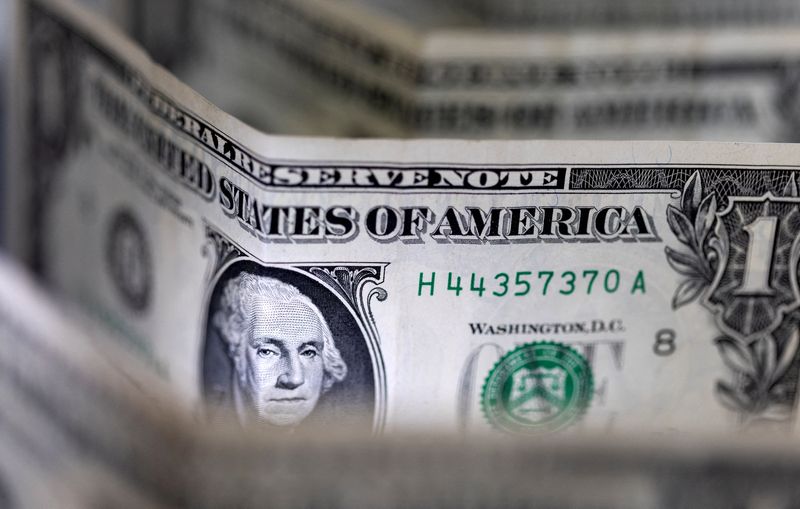By Yasin Ebrahim
Investing.com -- The dollar has peaked, but could be set for a last hurrah in the coming months before resuming a steeper downtrend as the Federal Reserve’s higher for longer rate regime isn’t yet priced in, according to Goldman Sachs.
The U.S. dollar index, which measures the greenback against a trade-weighted basket of six major currencies, fell by 0.87% to 102.75, well below its peak of 114.745 on Sept. 25.
“[O]ur new forecasts suggest that the Dollar has peaked—not likely to revisit the September (during the U.K. fiscal fears) highs again—but is still likely to experience phases of strength in the next 3-6 months, until it retreats more convincingly over a 12m horizon,” Goldman Sachs said in a note.
The bearish call on the dollar reflects “our stronger-than-consensus view that the US economy should be able to avoid recession,” Goldman Sachs added, pointing to a strong U.S. labor market, and improving sentiment on global growth amid a further and faster China reopening.
Data on Friday showed the U.S. economy created 223,000 jobs last month, above economists’ estimates of 200,000. Average hourly earnings fell more than expected to 4.6%.
As well as a strong jobs market, Goldman Sachs pointed to the structure of the housing finance and [the United States’] energy self-sufficiency that likely means the U.S. economy will be more resilient to monetary policy tightening as compared to other G10 economies.
Unlike in Europe, most U.S. households have fixed-rate mortgages, which have been locked in at historically low levels and aren’t vulnerable to Fed rate hikes.
“Most of U.S. households have a 30-year fixed rate mortgage…the Fed can raise rates to 5% or 6% it is not going to affect their down payments," Zhiwei Ren, Managing Director and Portfolio Manager, at Penn Mutual Asset Management told Investing.com in an interview. "New homebuyers are affected, but that's a very small portion of the population…and their impact on the economy is much, much smaller."
The coming months, however, could see some dollar strength as investor bets on Fed cut are premature, according to Goldman Sachs. “[T]market is under-pricing the required Fed hikes and FCI tightening needed to ultimately bring core inflation pressures down.”
